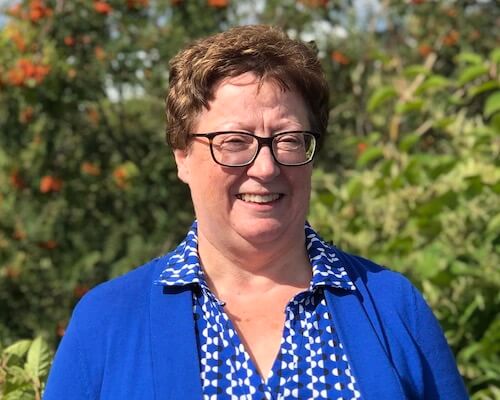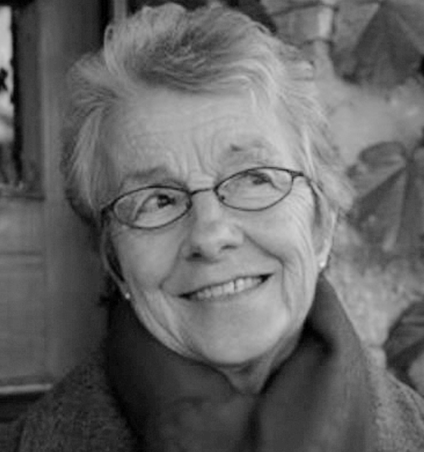Elaine
My mother-in-law, Marjorie Hillier, was diagnosed with dementia in 1997 at the age of 69. She was a highly intelligent, gentle, loving lady and a devoted wife, mother and grandmother. Her life revolved around her faith and her family.
Diagnosis
We had noticed signs that something was wrong but, nevertheless, her diagnosis was devastating to us all. We knew the journey ahead would be difficult, both for her and us. Knowing she would eventually not know who we were was hard to comprehend. We were also worried about my father-in-law and how his life would change significantly and how he would cope with the situation.
Marjorie and her husband lived in a rural community. He decided they would move to St. John’s where they would be closer to their children and more specialized medical care. Moving from familiar surroundings and friends presented its own challenges to them both. Her family kept her involved in social and family activities for as long as possible, until it became necessary to place her in long term care.
The health-care system
We had a good experience with the health-care professionals involved in Marjorie’s journey. They were kind and knowledgeable. Fortunately, two of her children are healthcare professionals. Their knowledge and understanding of the medical issues we encountered were a great support to us all.
Facing stigma
Our family didn’t experience any stigma with the diagnosis. Friends and extended family were saddened to hear the news and offered prayers and support.
I feel the views about dementia in general have changed significantly. Due to an aging population, dementia is increasing. Education and community supports for the person with dementia and their caregiver(s) are more readily available. There is less fear of the disease and more acceptance of a difficult diagnosis.
Our children were young at the time of their Nan’s diagnosis. We lived three and a half hours from St. John’s and did not see her as often as other family members.
Consequently, the changes we saw in her were more prominent to us. Our children found it difficult when she no longer knew who they were. Hugs became important because they knew when they hugged their Nan, she knew they loved her and were someone special.
Throughout her dementia journey, Marjorie remained the gentle person she had always been. She passed away in 2000. We miss her so very much each and every day.

Here are my tips to help you understand:
- A person with dementia deserves to be treated with dignity and respect at every stage of the disease. Inclusiveness and engagement in social settings are very important. Continue to have a conversation with your loved one, always remembering the person they were.
- Avail yourself of resources in the community. Education about the disease is key. It’s important for the family, caregivers, and close friends to gain as much knowledge as possible about dementia, what to expect along the journey, and how to support the person with dementia and their caregiver. Take advantage of programs like the Learning Series and family support groups.
- Each person with dementia is unique. There are symptoms and behaviors that may be similar to all, but each person’s journey is different due to who they were as a person and their life experiences.
- We should lead by example! Family, friends, and the community often take their lead from how you treat your loved one with dementia. Showing your loved one respect, patience, empathy and compassion in any social setting sets an example for the other people in the room.
-
More Stories
-

Catharine Ann
2018
Newfoundland and Labrador
-

Peter
2018
Newfoundland and Labrador
-

Roseanne
2019
Newfoundland and Labrador
-

Sara
2018
Newfoundland and Labrador

Comments
We may use your information in order to track your relationship with us and our site(s). We do NOT share your information with third parties.